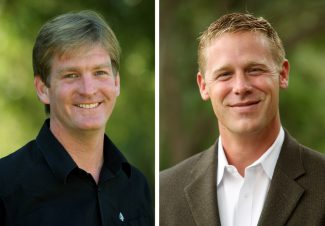Talk to Inspect Rice, U.S. Foreign Policy
By
Westmont

A panel of professors from Westmont and UC Santa Barbara discuss “Condoleezza Rice and the Direction of American Foreign Policy” in a free, public lecture Thursday, Feb. 24, at 5:30 p.m. at University Club, 1332 Santa Barbara St. Tickets are not needed, though seating is on a first-come, first-served basis. For more information, please call 565-6051. The lecture is in advance of Rice’s sold-out talk at the Westmont President’s Breakfast on March 4. The lecture is part of Westmont Downtown: Conversations about Things that Matter, which is sponsored by the Westmont Foundation. The panel, moderated by Deborah Dunn, Westmont communication studies professor, includes: Chris Hoeckley, director of Gaede Institute for the Liberal Arts at Westmont; Tom Knecht, Westmont political science professor; and Robert Rauchhaus, UCSB political science professor. Knecht, a Stanford graduate who earned a master’s degree and doctorate at UCSB, says Rice’s roles as national security advisor and secretary of state were very different. “The national security advisor is responsible only to the president, but the secretary of state must manage potential conflict between the president, Congress, international allies and from their own department,” Knecht says. “I’ll also examine the legacy of Dr. Rice and the Bush administration.” Hoeckley earned a bachelor’s degree from from Biola University and a doctorate in philosophy at the Claremont Graduate School. “The Iraq War brought traditional questions about when a state may go to war, and how it may wage war, into public discussion at a level we haven’t seen since Vietnam,” Hoeckley says. “In retrospect, how did the war measure up to traditional just war criteria? How can we maintain those criteria in the face of very different challenges?” Rauchhaus, who earned a doctorate from UC Berkeley, focuses his research and consulting on the formulation and implementation of strategy under conditions of uncertainty, risk, and strategic interaction. His recent publications and courses apply strategic choice theory to military strategy, national security policy, and conflict management.
Filed under
Academics, Faculty and Staff, Lectures, Press Releases